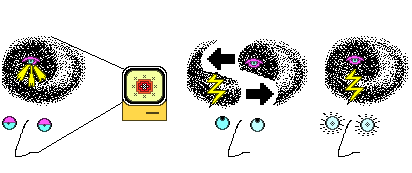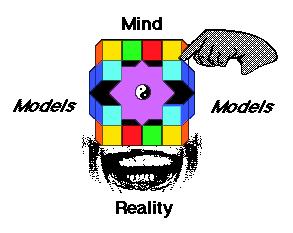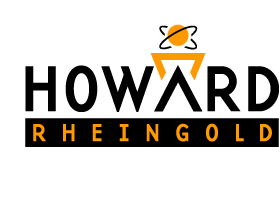I fell into the computer realm from the typewriter dimension in 1981, then plugged my computer into my telephone in 1983 and got sucked into the net. In earlier years, my interest in the powers of the human mind led to Higher Creativity (1984), written with Willis Harman, Talking Tech (1982) and The Cognitive Connection (1986) with Howard Levine, Excursions to the Far Side of the Mind: A Book of Memes (1988), Exploring the World of Lucid Dreaming (1990), with Stephen LaBerge, and They Have A Word For It: A Lighthearted Lexicon of Untranslatable Words and Phrases (1988).

I ventured further into the territory where minds meet technology through the subject of computers as mind-amplifiers and wrote Tools for Thought: The History and Future of Mind-Amplifiers (1984) [New edition from MIT Press, April 2000]. Next, Virtual Reality (1991) chronicled my odyssey in the world of artificial experience, from simulated battlefields in Hawaii to robotics laboratories in Tokyo, garage inventors in Great Britain, and simulation engineers in the south of France.

In 1985, I became involved in the WELL, a “computer conferencing” system. I started writing about life in my virtual community and ended up with a book about the cultural and political implications of a new communications medium, The Virtual Community (1993 [New edition, MIT Press, 2000]). I am credited with helping popularize the term “virtual community.”
I had the privilege of serving as the editor of The Whole Earth Review and editor in chief of The Millennium Whole Earth Catalog (1994). Here’s my introduction to the Catalog, my riff on Taming Technology, and a selection of my own articles and reviews from both publications.
In 1994, I was one of the principal architects and the first Executive Editor of HotWired. I quit after launch, because I wanted something more like a jam session than a magazine. In 1996, I founded and, with the help of a crew of 15, launched Electric Minds. Electric Minds was named one of the ten best web sites of 1996 by Time magazine and was acquired by Durand Communications in 1997. Since the late 1990s, I’ve cat-herded a consultancy for virtual community building.
My 2002 book, Smart Mobs, was acclaimed as a prescient forecast of the always-on era. In 2005, I taught a course at Stanford University on A Literacy of Cooperation, part of a long-term investigation of cooperation and collective action that I undertook with the Institute for the Future. The Cooperation Commons is the site of our ongoing investigation of cooperation and collective action. The TED talk I delivered about “Way New Collaboration” has been widely viewed.
I have taught Participatory Media/Collective Action at UC Berkeley’s School of Information, Digital Journalism at Stanford and continue to teach Virtual Community/Social Media at Stanford University, was a visiting Professor at the Institute of Creative Technologies, De Montfort University in Leicester, UK. In 2008, I was a winner in MacArthur Foundation’s Digital Media and Learning competition and used my award to work with a developer to create a free and open source social media classroom. I have a YouTube channel that covers a range of subjects. Most recently, I’ve been concentrating on learning and teaching 21st-century literacies. I’ve blogged about this subject for SFGate, have been interviewed, and have presented talks on the subject. I was invited to deliver the 2012 Regents’ Lecture at the University of California, Berkeley. I also taught online courses through Rheingold U.
You can see my painted shoes, if you’d like.


